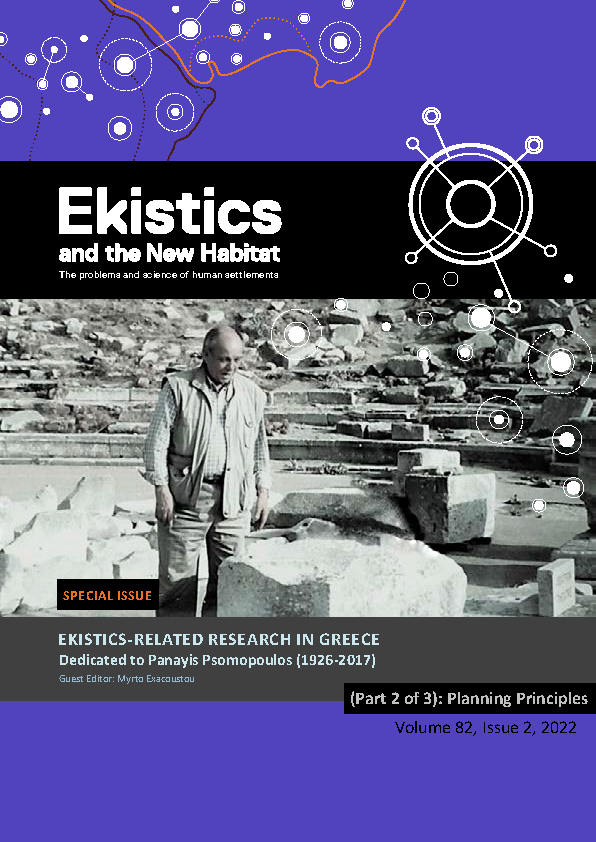Megalopolis Revisited: Reflections on Gottmann, Doxiadis, and the Northeastern United States
DOI:
https://doi.org/10.53910/26531313-E2022822664Keywords:
Gottmann , Doxiadis, Northeastern USA, MegalopolisAbstract
The term megalopolis, derived from the Greek language, has been used for over 2,400 years to signify ‘great city’ or ‘giant city.’ It was first applied as a placename in Ancient Greece, but its primary application on the global scene began in the late 1950s when the French geographer Jean Gottmann wrote a major book on the urbanized northeast of the United States, the corridor from Boston to New York, Philadelphia, Baltimore, and Washington D.C., conceiving the region as an integrated whole called Megalopolis. At that time this region was perhaps the most populous, and certainly the most prosperous, giant conurbation in the world—the pivotal center of the post-World War II global system. Subsequently the term megalopolis was built into Constantinos Doxiadis’ typology of past, present, and future human settlements, acquiring a global significance and many potential applications in other world regions. With over 60 years of hindsight, this paper reviews Gottmann’s Megalopolis as a regional monograph. It also discusses the collaboration between Gottmann and Doxiadis, and Gottmann’s transition from describing a specific geographical region to conceptualizing major polynuclear urban agglomerations with 25 to 100 million inhabitants in different parts of the world.
Published
How to Cite
Issue
Section
Categories
License
Copyright (c) 2024 Ekistics and The New Habitat

This work is licensed under a Creative Commons Attribution-NonCommercial-NoDerivatives 4.0 International License.
Please contact the Editor-in-Chief: editor@ekisticsjournal.org, should you have any questions on copyright for your submission.
This research journal is for Educational and Knowledge development purposes.
All material published on this site complies with our copyright and terms as described by the Attribution-NonCommercial-NoDerivaties 4.0 International (CC BY-NC-ND 4.0)






